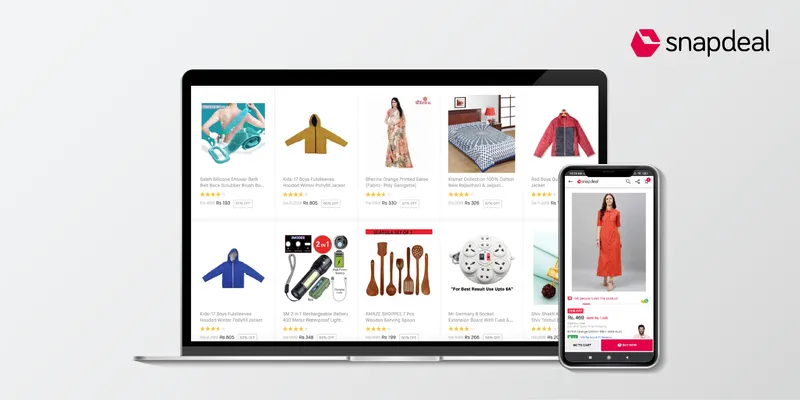
Snapdeal
View Brand PublisherWhy Snapdeal is ahead in the game with its value e-commerce approach
India has the second largest number of smartphone users from across the world after China, according to information provided by Statista. And as mobile penetration continues to deepen in the country, they often provide the first exposure to the Internet for many Indians living beyond metro-based cities.
This exposure has a deep impact on how they interact with the world around them, especially how they shop and trade. In a country where shopping meant either visiting traditional brick and mortar stores in neighbourhood markets, open-air bazaars or glitzy multi-storied malls, e-commerce has truly captured the imagination of the Indian consumer in new and exciting ways.
And e-commerce is only expected to flourish going forward. The sector is predicted to grow at a 27 percent CAGR over 2019-24 and is expected to reach $99 billion by 2024 in India, according to a report by EY-IVCA Trend Book 2021. The report also notes that this growth will be fuelled by 220 million online shoppers in India by 2025.
The rise of the value e-commerce opportunity
Access to the Internet, and smartphone adoption first took place among metro users before gradually reaching those living in tier II and tier III cities. The adoption of e-commerce is following a similar trajectory in the country.

Earlier, e-commerce was the exclusive domain of relatively affluent, brand-conscious consumers that purchased branded phones, electronics, apparel at a discounted price. But in recent times, e-commerce has gained the attention of a whole new kind of consumer with varied purchasing powers and aspirations.
Take Pooja Mishra* for example. This shopper in her late twenties would spend hours scouring the local bazaars for home linen like bed covers, kitchen and bathroom linens, occasional tableware, wall art and home decor products that would liven up her home in Jhansi. For Pooja, it was the complete experience of sampling the wares of different sellers, gauging their quality, and the thrill of negotiating for the best price that created for a fulfilling consumer experience every once in a while.
And herein lies the opportunity: Pooja is a member of one of the approximately 170 million households that shop in this manner. Members of such households, which account for close to 60 percent of households in India, look at the shopping experience through a value-oriented perspective. They know if they look hard enough they can find good quality products at affordable prices. Given that disposable incomes are limited, people are open to exploring a range of well-known, newer and lesser known brands that are budget friendly yet good quality. They are thus open to purchasing products from well-known brands, regional brands or even “unbranded” goods so long as the quality and the price is right.
Brand Waali Quality, Bazaar Waali Deal
For a long while, the needs of the value-oriented shopper were met by the shops in the local bazaars. In more recent years, parts of this value segment moved to organised physical retail via retail chains like D’Mart and Vishal Mega Mart. However, an online equivalent of this has been missing so far - the value e-commerce model.
In the last four years, Snapdeal has created this online equivalent which offers the best of value shopping with the unmatched convenience of online shopping. Snapdeal’s value e-commerce platform has improved the value buying experience from having to hunt for things from shop-to-shop, to simply having the best of choices displayed to them at the click of a button. It leverages technology to predict customers needs , offer personalised product recommendations and deliver a smooth experience from browsing to delivery.
“Value E-commerce is a great segment to be in. As more and more consumers come online, a large, value-focused catalogue will enable them to find products that meet their criteria on both quality & price. Value is an abiding Indian trait and will always find a large audience both offline and now increasingly online.” - Ankur Pahwa, Partner and National Leader, E-commerce and Consumer Internet, EY
Its latest campaign’s catchy slogan ‘Brand Waali Quality, Bazaar Waali Deal’ aptly encapsulates its value e-commerce offering — ‘brand-like’ quality products at ‘bazaar-like’ prices for the value-savvy consumer. For example: While a collared T shirt from a leading brand might cost Rs 2000, a similar T-shirt is available on Snapdeal for Rs 300 – Rs 400.
With an increase in digital adoption, value e-commerce has seen an uptick in recent years. The demand will continue to grow given the acceleration due to the pandemic. Snapdeal has disrupted the notion that Indian consumers find value and quality only among branded and expensive products. Its success in taking value online means new growth opportunities for ecommerce in India.
* Name changed







